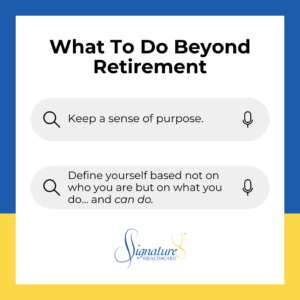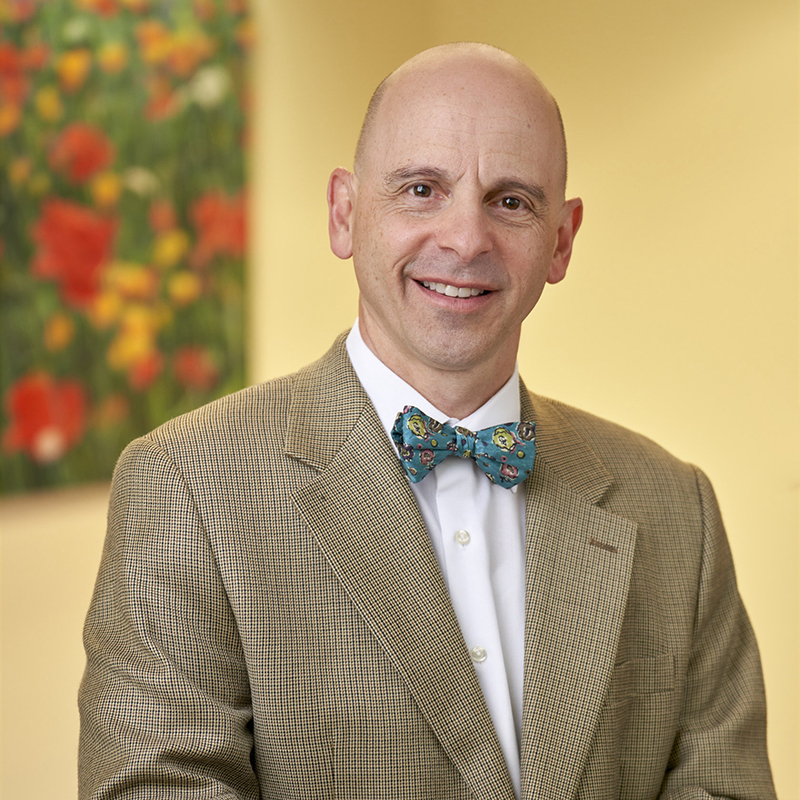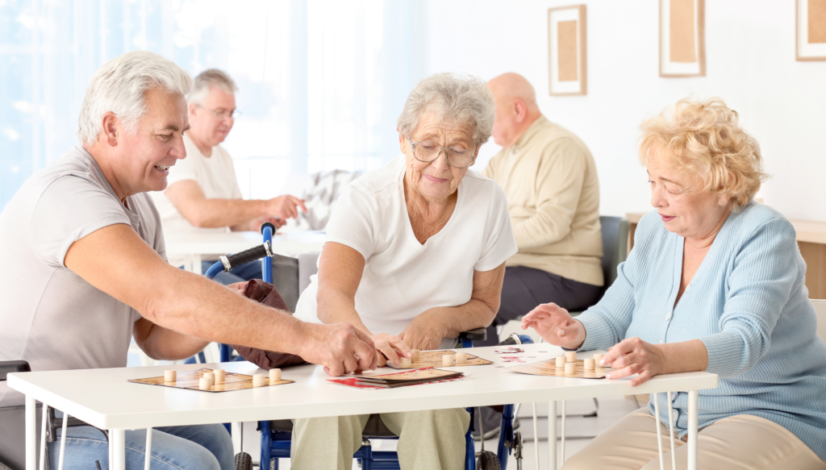Social Isolation and Dementia: Be Social, for a Healthy Brain As You Age
Socializing is good for you, regardless of your age.
You build a strong sense of community when you pursue hobbies and activities in a group setting with others. And perhaps most importantly, you stimulate your brain.
As you enter your later years, this mental stimulation becomes more critical. Several studies point to social isolation as a contributing factor in the onset of dementia, a wall that no one wants to hit.
All the strategies that reduce risks to our physical health — cardiovascular and resistance exercise, proper nutrition, and good sleep — are likewise vital to lessen dementia risk.
However, the need to prioritize social activity is often missing from that list of healthy strategies, even though social isolation and dementia are closely linked.
Avoid Social Isolation and Dementia
It’s not enough to sit passively in front of the TV (or talk to it, as my grandmother did).
We need regular human interaction — getting out with peers, kids, professionals, and new acquaintances. Consider stimulating lunches with family, theater dates with friends, or heading to the golf course (even if you no longer golf but watch your buddies from the cart).
Note that I emphasize regular socialization. When an aging patient tells me, “I have lunch with my friends on Sundays,” I’m unsure that’s enough. It’s important to interact with others as often as possible — every day, if feasible.
It’s the difference between going to the gym and exercising only biceps versus completing a more complex Pilates routine that strengthens several muscles at once. Daily social interaction is a “Pilates routine” for your mind.
As we interact with others through regular hobbies and activities, we nurture our memory, language skills, problem-solving, and executive function as we age — all important to delay or prevent the onset of dementia and maintain healthy cognition.
To promote mental flexibility and longevity, middle-aged and senior adults must actively engage in things they love, with the added element of social interaction. It’s never too early to begin.
Do What You Love, but Do It With Others
Regardless of age, find something you love doing and do it with like-minded people.
Do you enjoy playing a musical instrument? That requires a lot of concentration, which is an excellent exercise for your brain. But don’t derive social benefits from playing alone in your study.
Try it in a group setting — a duet, a quartet, or maybe even a full orchestra. I play the violin, and after a few years of polishing my skills, I joined the Queen City Orchestra, which is open to musicians of all skill levels and requires no audition.
I also love disc golf and play it twice weekly when possible, but always with a buddy. Playing on the course isn’t as enjoyable as interacting with a friend.
People who golf agree: While they love going to the driving range or playing 18 holes, golfing with comrades for four hours on a Sunday afternoon is more fun. The outing exercises their brains, requires physical skill, and places them in a positive group environment — all factors that reinforce good health and help stave off dementia as we age.
So, do what gives you joy… but do it with others whenever possible.

Grab Some Occasional Solitude
I also happen to like woodworking on the workbench in my garage. There, I enter a flow state — something musicians or athletes often experience.
When I focus on the work before me, all the world’s problems disappear, and I lose track of time. When I fix or build something, I may suddenly realize I’ve worked for six hours without even a meal break.
This state of flow is a beneficial form of therapy, purging the brain of negativity, world turmoil, or family issues that tire you and harm your health.
Flow recharges your batteries and rejuvenates your brain, a healthy consequence of having a hobby you love.
But don’t forget: To promote healthy aging and stave off dementia, spend more time on hobbies that emphasize the social element.

Age With Attitude
Many of my patients are recent retirees or about to retire. I can tell who will feel best about their retirement by asking them: “What will you do when you retire? What are your plans?”
Unfortunately, rather than a plan, many have a vague notion that retirement means puttering, reading, and lounging by the pool. But within a year or so, some of them find a retirement job, and some even experience emotional consequences like depression because they suddenly feel adrift. Here’s my advice to retirees:
Keep a sense of purpose.
- Approach retirement the same way you’d develop a five-year business plan for your company. Here’s what I want to accomplish and how I intend to do it.
- Your plan may shift along the way, but it’s healthy to awaken each day with a feeling of intention. Maybe you’ll head downtown to teach young people how to be entrepreneurs. Or find creative stimulation in devising and building a new dining-room table.
Do not define yourself based on what you do or have done for the last 40 years.
- A doctor (CEO, teacher, lawyer) who retires after decades in that role may have an existential crisis when they no longer play that part. Retirees are suddenly forced to wonder, “Who am I?” and often flounder in their senior years.
- Channel your energies in a fresh new direction, whether tutoring, volunteering, or picking up the trombone. Engage your passions in novel ways and, importantly, in ways that socialize with others.
Find Your People
In North Carolina, over 1/4 of people 65 and older live alone, with limited ability to be active and socialize, thus contributing to social isolation and dementia.
But we’re all social creatures by nature. Getting together with others is a self-reinforcing act that may protect you from dementia in your senior years.
What are your favorite activities? What do you have the urge to try? What’s the best way to find joy by interacting with others?
Your Signature Healthcare physician can help you get started. Let’s have a chat.

Dr. Marshall Silverman
Dr. Marshall Silverman, MD, a board-certified internal medicine specialist with over two decades of experience in Charlotte, combines his clinical role with academic pursuits as a clinical associate professor at UNC-Chapel Hill. His diverse interests span from disc golfing and woodworking to playing the violin and authoring illustrated children’s poetry books, reflecting a unique blend of medical professionalism and creative expression.

